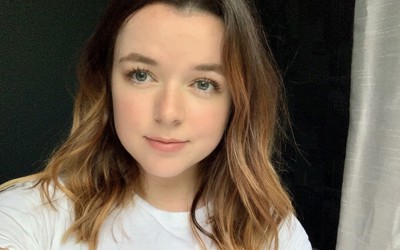Information for judges
We are running an online information session for new judges on Tuesday 24 February 2026 between 7 and 8pm. This will be a chance to hear from experienced judges about the judging process as well as the structure of the debate. This session is open to past judges who want a refresh, and those who have never judged before. We are hoping to record the session, so please sign up even if you are unavailable on the night.
You can register using the following link : https://forms.office.com/e/RZgviUnnu9
We rely heavily on our volunteer judges to make the tournament a reality. To ensure high judging standards, new judges should read the judges handbook/guidance thoroughly and watch the mandatory training webinar. If you have missed registration and you are still interested in judging please contact, debate@lawscot.org.uk
Debate Judge Guidance 2025 2026
Whether you're a law student, a trainee, a practising or retired solicitor or just love debating, we'd love to hear from you!
No experience is necessary, though an interest in debating is always welcome. If you would like to find out what is involved before registering, we are more than happy for you to attend a debate and discuss the process with the panel of judges.
After registration we assign heats to you based on your location and date preferences.
Yes. For each round we make every effort to ensure there are three judges, with one acting as a presiding judge. The presiding judge will be familiar with our competition and the judging procedure, so you can learn from the people around you, share the experience with others and make some local contacts!
After you register, you will be asked to watch a short video outlining the important information you need to know before judging. Shortly before each heat we will email you with the order papers, marking sheets and the up-to-date tournament guidelines for judges. Please ensure that you read the tournament guidelines carefully prior to a heat, particularly if you are new to judging our competition.
Read the case studies below to find out why our judges love being involved in the tournament:
If you do not receive your papers, or have any questions at all please email debate@lawscot.org.uk
Stephen Waclawski, Associate at BTO Solicitors
What made you volunteer to become a debating tournament judge?
I remember how much I enjoyed debating at school. Our school competitions were organised by our history teacher. I thought about how much of his own personal time he must have devoted to those competitions. I won't lie, I was terrified doing those first debates, but I also got a lot out of them. Thinking back, a lot of the skills I learned have helped me with my career in litigation. I volunteered so that others could benefit from the same experience.
How long have you been judging in the tournament?
I judged my first debate in 2014.
Why do you enjoy it?
I enjoy listening to the debates as they are always on interesting topics. It's incredible how well informed the competitors are! I also think it's important to support initiatives like this one, which encourage children to develop confidence in public speaking and in putting forward evidence based arguments.
What has been your highlight so far?
The 2015 final. Even the floor questions were impressive, to say nothing of the speakers themselves!
What makes a good debating team?
As I have only seen two of the debates, it's difficult for me to say. My impression was that the most successful teams were well prepared. They knew what their position was in detail and had evidence in the form of examples and statistics to support the points they wished to make. The best pairs worked well as a team, referring to one another's arguments and the responses made to points of interest. They were able to use their preparations in a fluid way to respond to the questions asked and the other side's position. Above all, they were able to hold their nerve when they came under pressure from the audience and the other side.
What would you say to someone thinking of volunteering to be a judge in next year's tournament?
Do it!
Craig Kennedy, Associate at Maclay, Murray & Spens LLP
What made you volunteer to become a debating tournament judge?
I was invited to become a judge by a friend who works at the Law Society.
How long have you been a judge in the tournament?
Three years.
Why do you enjoy it?
It is an excellent opportunity to witness some of the talent for public speaking that exists in high schools around the country. Several of the pupils who take part are interested in pursuing a career in law and it is gratifying to be able to offer practical guidance and insight to aspiring lawyers.
What has been your highlight so far?
The exceptionally high quality of all of the speakers I have witnessed in my capacity as a judge. The quality and delivery of material is generally of a very high standard and many of the speakers have a natural ability to deliver persuasive arguments in an entertaining fashion.
What makes a good debating team?
A team that is willing to engage in the debate. The most successful teams take issue with their opponent's position by highlighting flaws or inconsistencies and offering reasons why their position should be preferred.
What would you say to someone interested in volunteering to become a judge?
It is an excellent opportunity to offer support, encouragement and guidance to very able public speakers. It is also likely that you will be entertained (and enlightened) by some of the debates that you will see!

